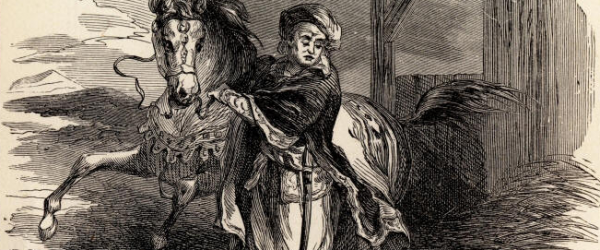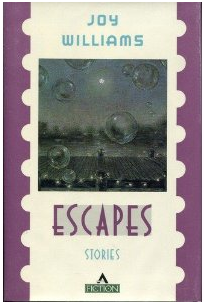
Book Review: ‘Escapes’ by Joy Williams
Books, Reviews
Pity the character who inhabits a Joy Williams short story, for there is little happiness in store for them there. Williams got her start in the 1970s and 80s, at the height of the minimalist period known as “K-Mart Realism”, when authors such as Raymond Carver, Ann Beattie, and Bobbie Ann Mason were reinventing the short form with stark, sparse tales of working class anti-heroes being kneecapped by the pressures of daily life. But where Carver is often bleak bordering on noir, the world of Joy Williams offers a more magical – and often more satisfying – route to despair.
Williams has said of her fiction that “the conundrum of literature is that it’s not supposed to say anything”. Unable or unwilling to articulate a source for their existential angst, the characters in “Escapes” wander blind through a kind of moral vacuum, stumbling past any sign of a unifying force – like intimacy, passion, or faith – that might help them rise above misfortune.
Take the emotionally immature Lucy in the brilliant story “Rot”. Lucy’s much older husband buys an antique car rusting from the core (“Rot like this cannot be stayed”, a strangely prophetic old mechanic tells the couple). Lucy argues that the car “was meant to know the open road … I think we should drive it till it drops.” But the husband has fetishized this memento to his lost youth, and ends up demolishing a wall to install the decaying automobile in their living room. In the end, Lucy understands that she is beginning to outgrow her husband when she can say, with real certainty, “I never did want to be a part of everything”.
Lucy’s realization, which is framed in opposition to some oppressive force, is typical of the epiphanies here. It’s enlightenment by exclusion. Indeed, the first word spoken by a narrator in this collection is “No.” It will take these characters an eternity to uncover what they want, approaching life in this fashion. Meanwhile, they practice a rough-and-tumble sort of affection, one “of daring and deception, hopes and little lies.”
And the lies help them survive. In the lovely story “The Skater”, young Molly is visiting boarding schools with her shell-shocked parents. We learn that Molly’s sister has died recently. In “The Skater”, the author presents us with a world that, by its very design, dooms its denizens to destruction: “In mythical stories, it seems, there were two ways to disaster. One of the ways was to answer an unanswerable question. The other was to fail to answer an unanswerable question.”
You’re screwed either way, it seems. And so rather than answer the unanswerable, these characters lie to themselves and to one another. Their fictions offer a freedom real life won’t allow, as Molly describes in “The Skater”, after telling a minor fib about her dead sister to a potential classmate:
Molly shrugs. She feels happy, happier than she has in a long time. She has brought Martha back from the dead and put her in school. She has given her a room, friends, things she must do. It can go on and on. She has given her a kind of life, a place in death. She has freed her.
“The Skater” ends with a beautiful image. Molly’s father Tom has gone down into a cellar looking for a whiskey glass, where he stumbles on an old skating rink beside a frozen lake. He is soon joined by his wife Annie:
Tom goes down into the cellar for the glasses. The skates, their runners bright, are jumbled upon the shelves. The frozen lake glitters in the window. He pushes open the door and there it is, the ice. He steps out into it. Annie, in their room, waits without taking off her coat, without looking at the bottle. Tom takes a few quick steps and then slides. He is wearing a suit and tie, his good shoes. It is a windy night and the trees clatter with the wind and the old inn’s sign creaks on its chains. Tom slides across the ice, his hands pushed out, then he holds his hands behind his back, going back and forth in the space where the light is cast. There is no skill without the skates, he knows, and probably no grace without them either, but it is enough to be here under the black sky, cold and light and moving. He wants to be out here. He wants to be out here with Annie.
From a window, Molly sees her father on the ice. After a moment, she sees her mother moving toward him, not skating, but slipping forward, making her way. She sees their heavy awkward shapes embrace.
Molly sees them, already remembering it.
Despite Williams’ proscriptions about fiction, she seems to be saying something of real import with these sad, moving little stories. Loneliness and despair cast long shadows over the possibility of any real, or sustained, sense of joy. But the tender moments shine that much brighter for all the surrounding darkness.























[…] review was originally published at Zouch Magazine) This review is one in a series for what I’m calling the The DIY MFA in Creative […]